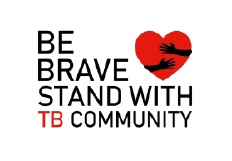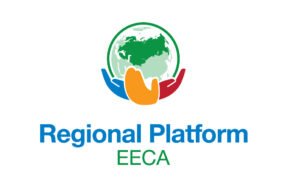Sustainability of opioid agonist therapy programmes in Belarus, the Republic of Moldova, Tajikistan and Ukraine in the context of transition from Global Fund support during 2020–2023
- 23.01.2025 15:50
- Post Views: 150
Published at: Harm Reduction Journal (2024) Article 183
Authors: Raminta Stuikyte, Ivan Varentsov, Naimdzhon Malikov, Sergii Dvoriak, Myroslava Filippovych, Alisher Latypov, Aleksei Kralko, Ala Iatco & Catherine Cook
Background
Most national programmes of opioid agonist therapy (OAT) in Eastern Europe and Central Asia are at a critical juncture for building their sustainability due to decreasing support from the Global Fund and other international HIV funders. Therefore, it is timely to identify the status, trends, opportunities and risk factors of OAT preparedness in the face of donor transition.
Methods
The study assessed the OAT sustainability progress in 4 countries: Belarus, the Republic of Moldova, Tajikistan and Ukraine. The study used a comparative country case study design with qualitative methods and two data points in 2020 and 2022–2023. In total, 363 sources were reviewed and used, 83 interviews with key informants and 13 focus groups were conducted with clients, using a joint methodology and a defined Framework with three dimensions: ‘Policy & Governance’; ‘Finance & Resources’; and, ‘Services’.
Results
All four countries have made improvements to increase OAT sustainability, though it varied. In 2022, Ukraine had a substantial degree of sustainability, followed by Belarus and Moldova with a moderate degree, while Tajikistan’s sustainability was at moderate-to-high risk. No country achieved a high degree of OAT sustainability in any of the three dimensions measured. However, a high degree of sustainability was reported for at least one indicator in Belarus, Moldova and Ukraine: ‘Medicines’; ‘Financial resources’; ‘Evidence and information systems’; ‘Service Accessibility’; or, ‘Service integration & quality’. On average, the greatest improvement between 2020 and 2022 was seen for ‘Availability & coverage’; ‘Financial resources’; ‘Service quality & integration’; and, ‘Service accessibility’. The highest risks across the countries, notably in Belarus and Tajikistan, were recorded for the indicator, ‘Availability and coverage’. Of concern is that the least progress, or even a decline, was found in ‘Human resources’.
Conclusions
OAT sustainability in the 4 analysed countries remains at risk, despite progress in all countries. Managing HIV donor transition can have positive effects in addressing financial sustainability, especially inspired by Ukraine’s continued progress despite economic contraction and Russia’s invasion. More attention is needed to non-financial aspects of OAT sustainability in donor transition planning. The directions that could have multifaceted positive influence for OAT long-term resilience and scale up for impact on drug problems include decentralisation outside of health settings and broader drug treatment financial and management transformation, together with drug policy reforms. Thus far, viable solutions for sustainability of OAT in conflict areas appear unlikely. Building OAT resilience should remain high on the agenda of national stakeholders, technical partners and donors.
Services for migrants and refugees from Ukraine – HIV/TB care with a focus on key populations
Due to the increasing flows of refugees from Ukraine because of Russia’s invasion of Ukraine, the EECA Regional Platform created a spreadsheet to fill contacts details of face-to-face and online services for refugees and migrants (with a focus on HIV/TB care and key population groups).
Regional Platform – EECA
This web-resource is a part of new regional communication and coordination project “Regional Civil Society and Community Support, Coordination and Communication Platform - EECA”, implemented by Eurasian Harm Reduction Association (EHRA).
Tags
See also
-
EECA’s Regional Platform monthly Newsletter #20, January 2026 27.01.2026 12:58
-
Global Fund Eligibility List 2026 27.01.2026 11:19







